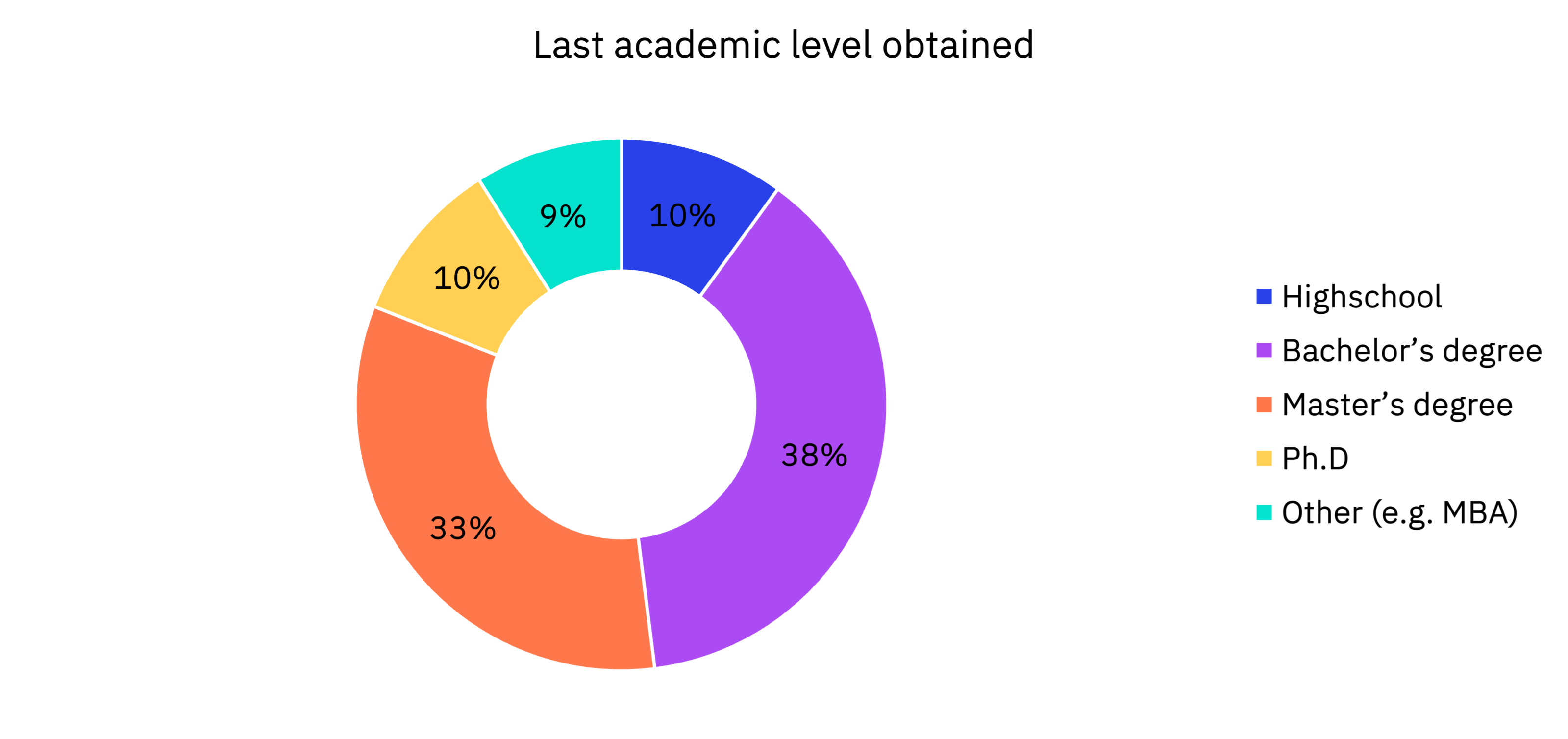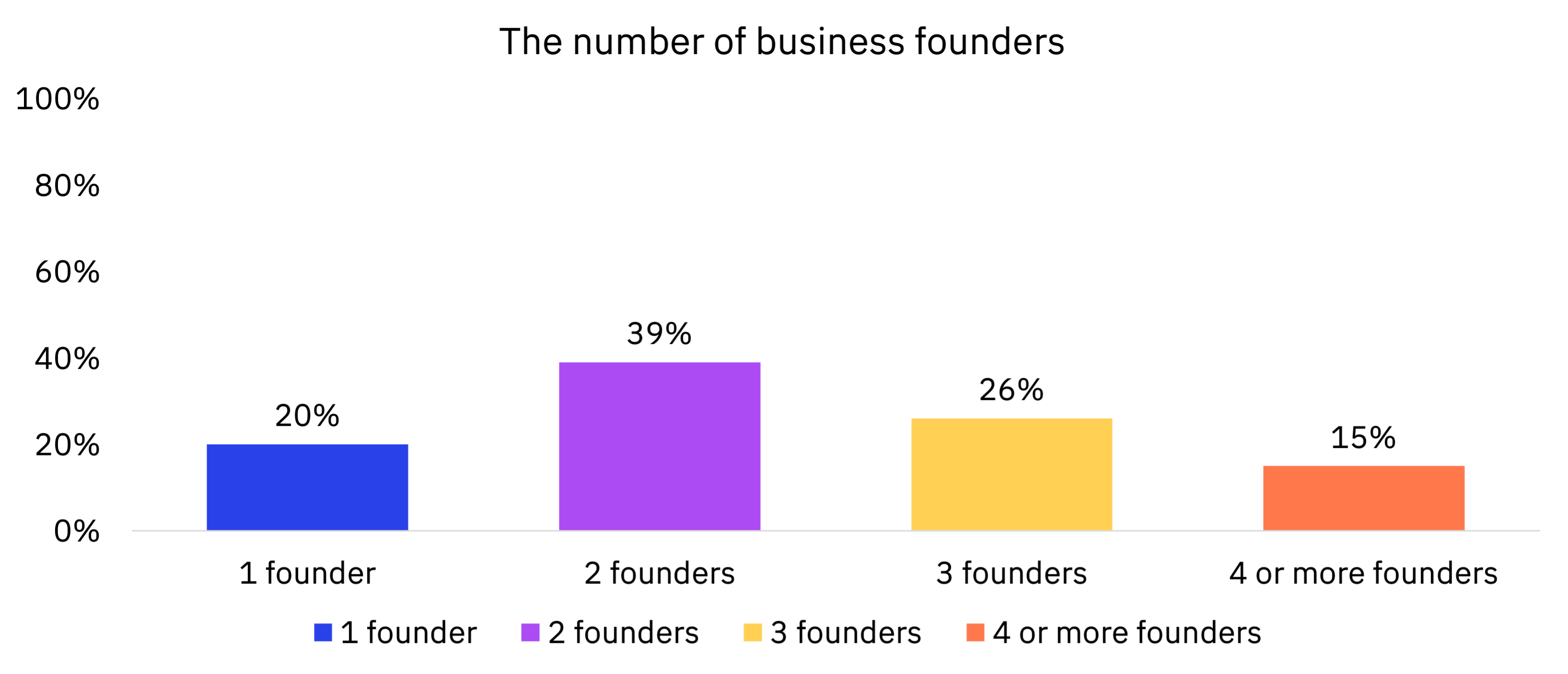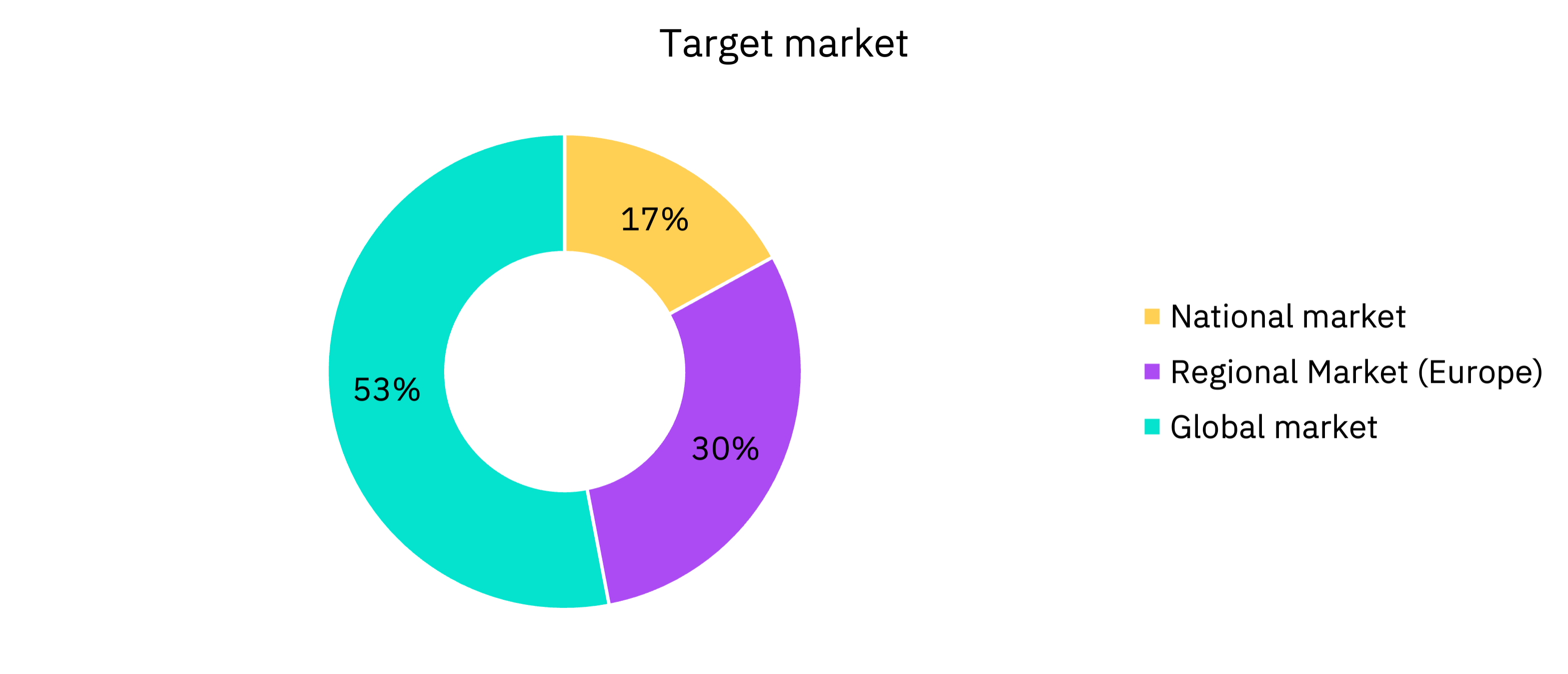The Profile of the Romanian Entrepreneur in Tech

Entrepreneurs are often seen as the lifeblood of economic growth and innovation, taking risks and pushing boundaries to bring their ideas to life. While entrepreneurship has long been a cornerstone of developed economies, in Romania, it is a relatively recent phenomenon, gaining momentum after the 1989 revolution. The 1990s presented challenges in transitioning to a capitalist democracy, but EU and NATO integration spurred growth, with both foreign and domestic businesses thriving.
Today, Romania’s tech sector stands out as one of the most dynamic and rapidly expanding industries. Driven by the innovative spirit of Romanian leaders, the sector showcases remarkable growth in employment and ventures, positioning Romania as an emerging force in the global tech landscape.
Chapter 1
The beginning of the entrepreneurial journey
Romania’s entrepreneurial landscape is notably youthful, with half of surveyed founders starting their ventures before the age of 25. Remarkably, 11% took the leap even earlier, launching their first businesses before turning 18, showcasing boldness and adaptability from a young age.

"The people you start with matter a lot. Their technical skills are not the only things that are important, it really matters to resonate on a values level."
Chapter 2
The impact of the academic background on Entrepreneurs
Romania has seen a significant rise in entrepreneurial activity, marked by a strong double-digit increase in the number of entrepreneurs. While entrepreneurship spans across the country, Bucharest and Cluj stand out as the top choices for new ventures, as supported by survey data and the National Trade Register Office.

This concentration of entrepreneurial activity in Bucharest and Cluj can be linked to their status as leading academic hubs. According to the survey, 90% of Romanian tech entrepreneurs hold advanced degrees such as BA, MA, PhD, or MBA. Interestingly, 10% of tech entrepreneurs have only completed high school education but have still achieved remarkable success, with 40% of them running businesses generating over €500,000 in revenue.
"Definitely a team player. An entrepreneur must, first of all, be a team leader and know what he has to get involved in, but also know what he can delegate, what he can build with other people."
Chapter 3
The experience of the Romanian Tech Entrepreneurs
Entrepreneurship often runs in families or close networks, with 53% of surveyed entrepreneurs citing it as common among their family or friends. This influence provides inspiration and resilience but doesn’t diminish the inherent challenges, especially for young founders navigating the isolating journey of building a new product or service.

In Romania’s tech sector, 80% of surveyed ventures were launched by teams of two or more founders, with 15% involving four or more and 20% starting with solo founders. Success appears closely tied to collaboration: 77% of ventures generating over €500,000 in revenue were founded by teams, highlighting the strategic advantage of shared expertise.
"An entrepreneur must, first of all, be a team leader and know what he has to get involved in, but also know what he can delegate, what he can build with other people."
Chapter 4
Direction and purpose of the Romanian Tech Entrepreneur
Romanian entrepreneurs have historically faced challenges in accessing capital and expanding their client base, particularly against well-funded and experienced international competitors. In the early stages of Romanian entrepreneurship, entering European and global markets was especially daunting. However, Romania’s accession to the EU and NATO marked a turning point, driving many entrepreneurs to explore international opportunities to diversify and grow.

Survey findings reveal that over half of Romanian tech entrepreneurs target clients beyond national borders, with many envisioning their ventures as global from the outset. Interestingly, market preferences vary by the age of founders. Entrepreneurs who started after 25 are more likely to target the global market (58%) than those who began before 25 (49%). Younger founders, however, show a stronger focus on regional European markets, with 31% prioritizing this area compared to 28% of their older peers.